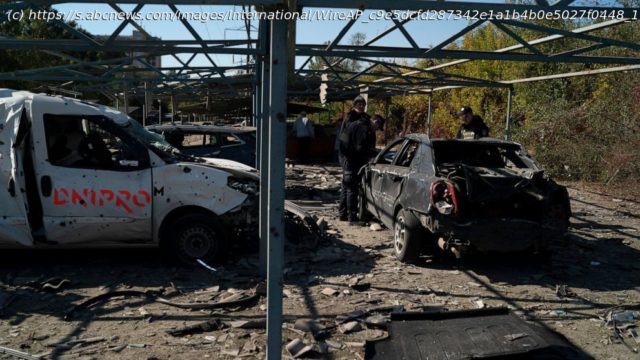Array
A missile strike seriously damaged a key energy facility in Ukraine’s capital region, the country’s grid operator said Saturday as the Russian military strove to cut power in far-flung populated areas while also defending against Ukrainian counterattacks in occupied regions.
Kyiv region Gov. Oleksiy Kuleba said the strike on the unidentified facility did not kill or wound anyone. Electricity transmission company Ukrenergo said repair crews were working to restore electricity service but warned residents about further possible outages.
After a truck bomb explosion a week ago damaged the bridge that links Russia to the annexed Crimean Peninsula, the Kremlin launched what is believed to be its largest coordinated missile attacks in Ukraine since the initial invasion of the country in late February
This week’s wide-ranging retaliatory attacks, which included the use of self-destructing explosive drones from Iran, killed dozens of people. The strikes hit residential buildings as well as civil infrastructure such as power stations in Kyiv, Lviv in western Ukraine, and other cities that had seen comparatively few strikes in recent months.
Kyrylo Tymoshenko, the deputy head of the Ukrainian president’s office, on Saturday urged Kyiv area residents and people in three neighboring regions to reduce their energy consumption during evening hours of peak demand.
Russian President Vladimir Putin said Friday that Moscow did not see a need for additional massive strikes but his military would continue selective ones. He said that, of 29 targets the Russian military planned to knock out in this week’s attacks, seven weren’t damaged and would be taken out gradually.
The Institute for the Study of War, a think tank based in Washington, interpreted Putin’s remarks as intended to counter criticism from pro-war Russian bloggers who “largely praised the resumption of strikes against Ukrainian cities but warned that a short campaign would be ineffective.“
“Putin knew he would not be able to sustain high-intensity missiles strikes for a long time due to a dwindling arsenal of high-precision missiles,” the think tank said.






